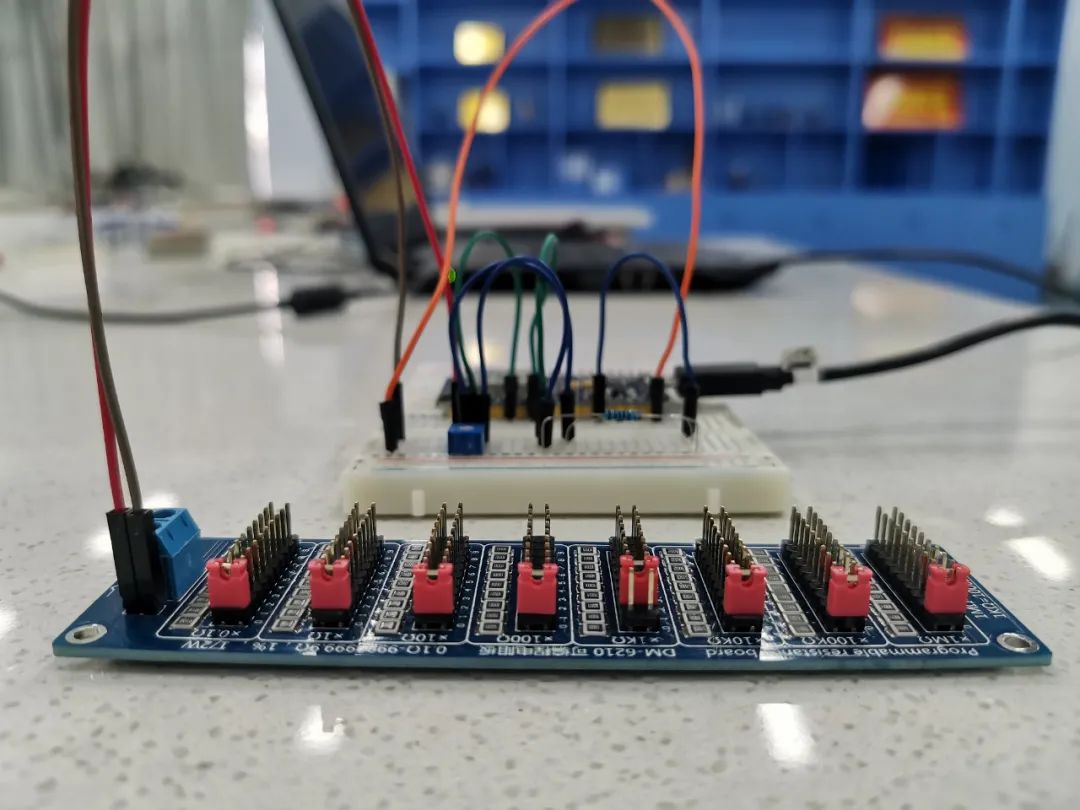
Recently, we studied the relationship between the current in various parts of a voltage divider circuit and the movement of the sliding contact, drawing the relationship graph with the help of Geogebra.
Now, we use Phyphox for experimental exploration to see if the theory matches the practice.
Maker Jiaozuo Early Research
Using Geogebra to explore the variation of current in various parts of the voltage divider circuit
Test Replay

Reference Answer
AC
Reference Analysis
In a closed circuit, using the voltage divider principle, as the sliding contact moves from a to b, the resistance of the parallel section increases while the resistance of the remaining part decreases, leading to an increasing voltage drop across the parallel section, hence the reading of A2 increases.
However, A1 reads the voltage across the sliding rheostat, and since both the voltage and resistance increase simultaneously, the ratio of their increase cannot be simply determined; from the perspective of special values, when the slider is at point a, the voltage drop across the sliding rheostat is less than when the slider is at point b, thus the reading of A1 gradually decreases.
Geogebra Simulation
In Geogebra software, it was found that when the internal resistance of the power supply is small, the reading of ammeter A1 first decreases and then increases as Rx increases; when the internal resistance of the power supply is large, the reading of ammeter A1 monotonically decreases as Rx increases.
Here, the boundary between the internal resistance of the power supply and the total resistance of the sliding rheostat is defined.
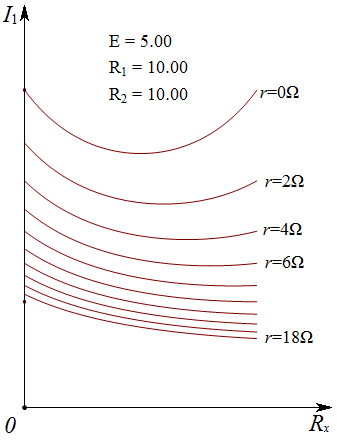
Experimental Exploration
Based on the circuit in the reference test, we built an experimental circuit using a potentiometer, fixed resistors, and a programmable resistor board. We powered the circuit using the “+5V” and “GND” pins of the ESP32, measuring the sampling resistor potential with the “IO33” pin and the potentiometer slider potential with the “IO35” pin.
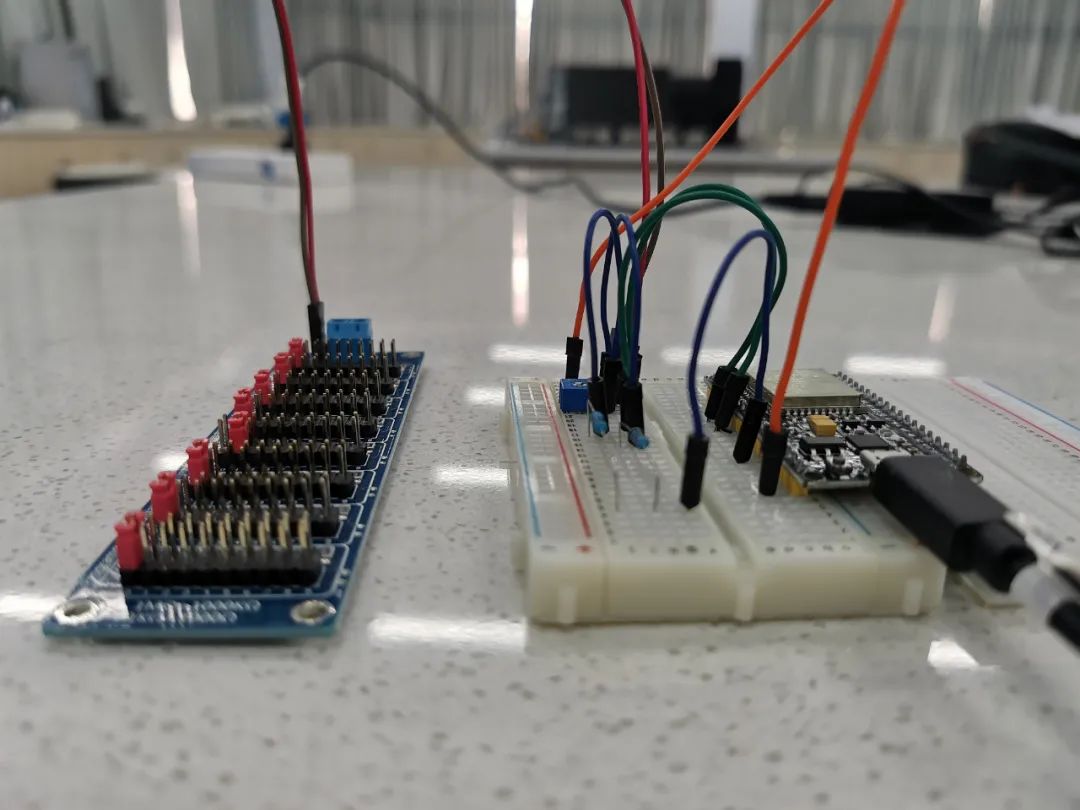
Using the data measured from pins “IO33” and “IO35”, we calculated the resistance value Rx of the parallel part of the rheostat and the current value Ix, and sent it via Bluetooth to Phyphox, which plotted the I1-Rx relationship graph.
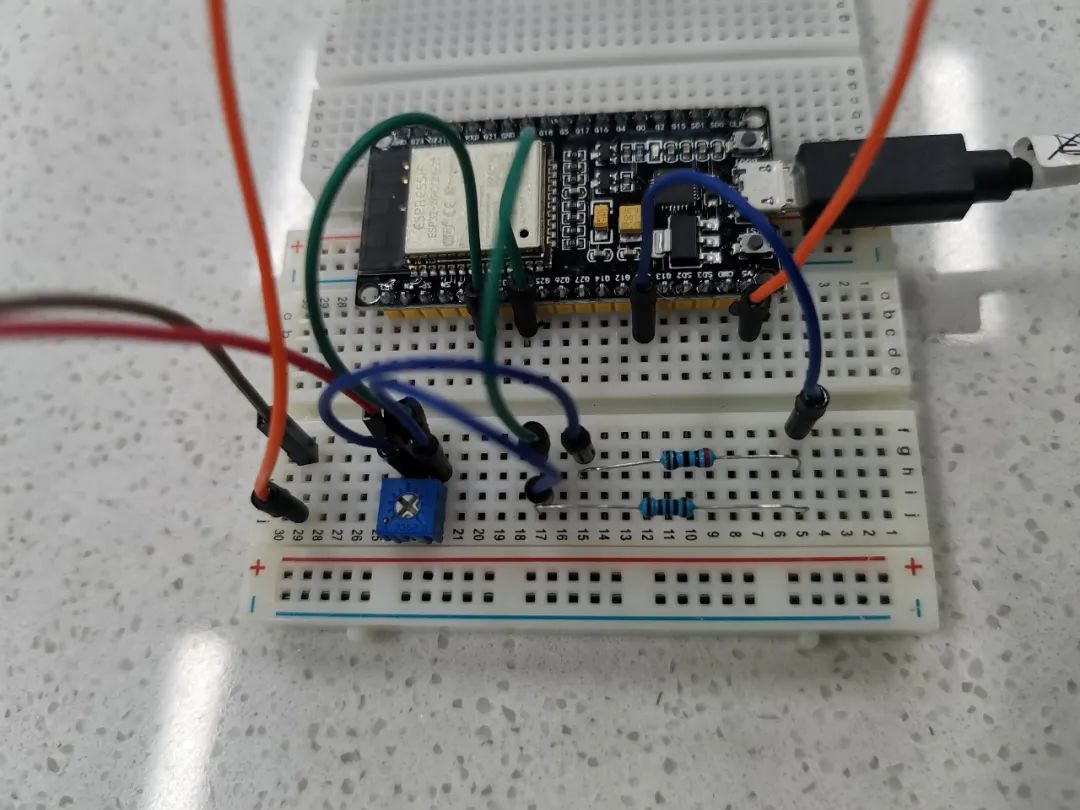
Component parameters: potentiometer 2KΩ, sampling resistor 100Ω, voltage divider resistor 200Ω, power supply electromotive force 5V, equivalent internal resistance of power supply 200Ω, 4KΩ.
Turn on Bluetooth, add the experiment in Phyphox using Bluetooth, load the experiment file into Phyphox. Then run the experiment, rotate the potentiometer knob with a screwdriver, and move the potentiometer slider. Phyphox will automatically draw the A1-Rx relationship graph.
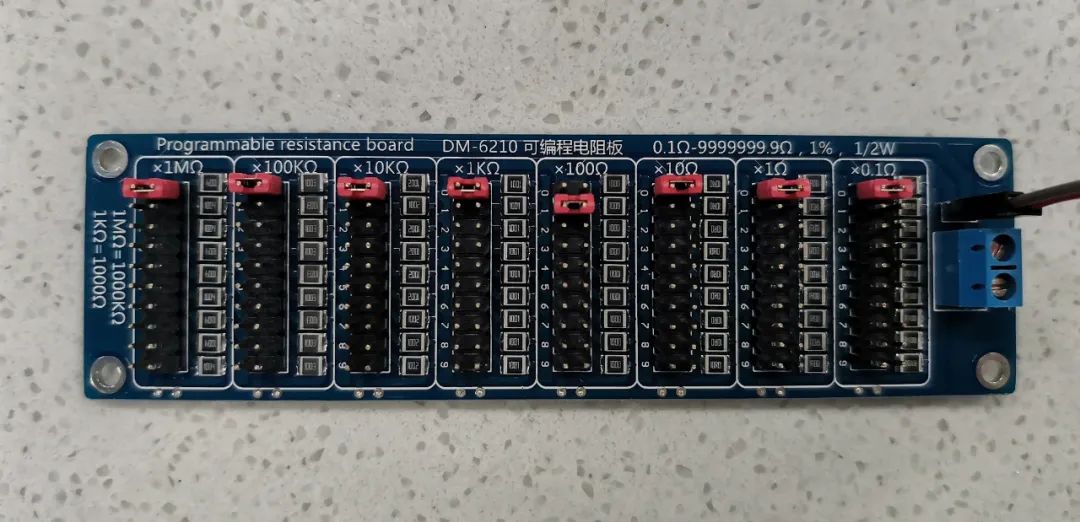
r=200Ω
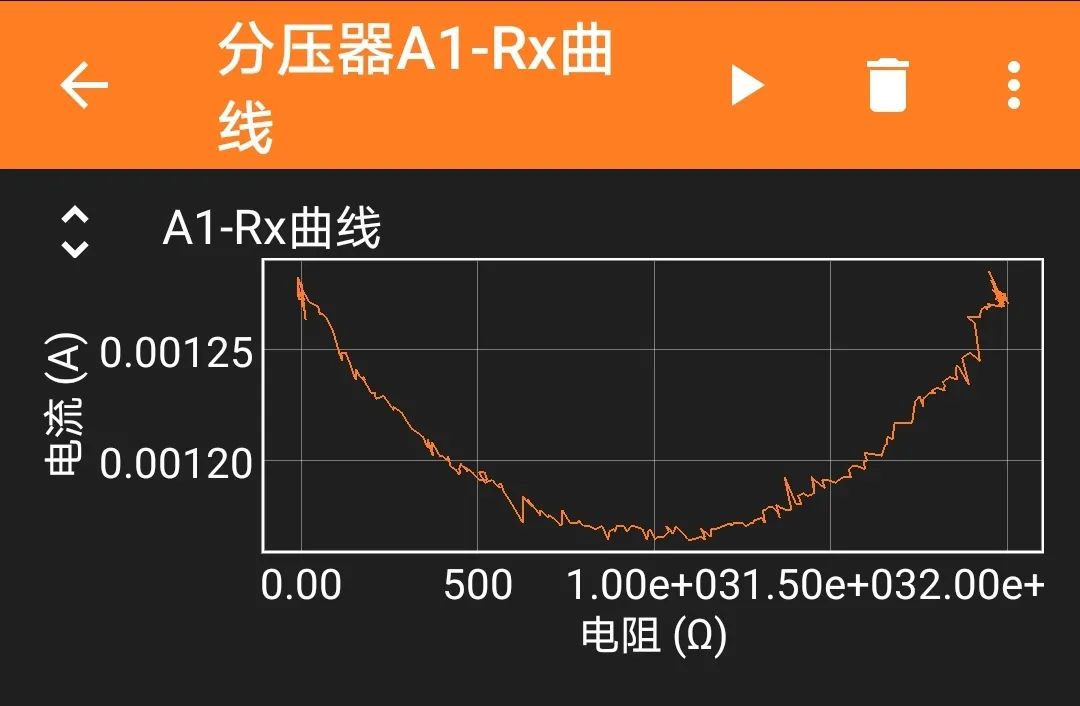
A1-Rx relationship graph
According to theoretical analysis, the resistance value corresponding to the lowest point of the curve is 1100Ω, with the lowest point within the variable resistance of the rheostat. The current A1 first decreases and then increases as Rx increases. The experiment is highly consistent with the theory.
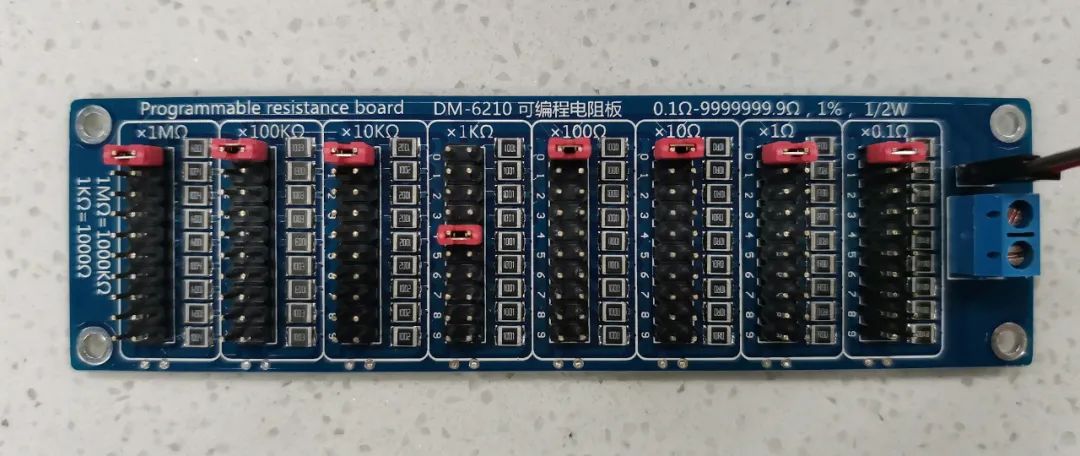
r=4KΩ
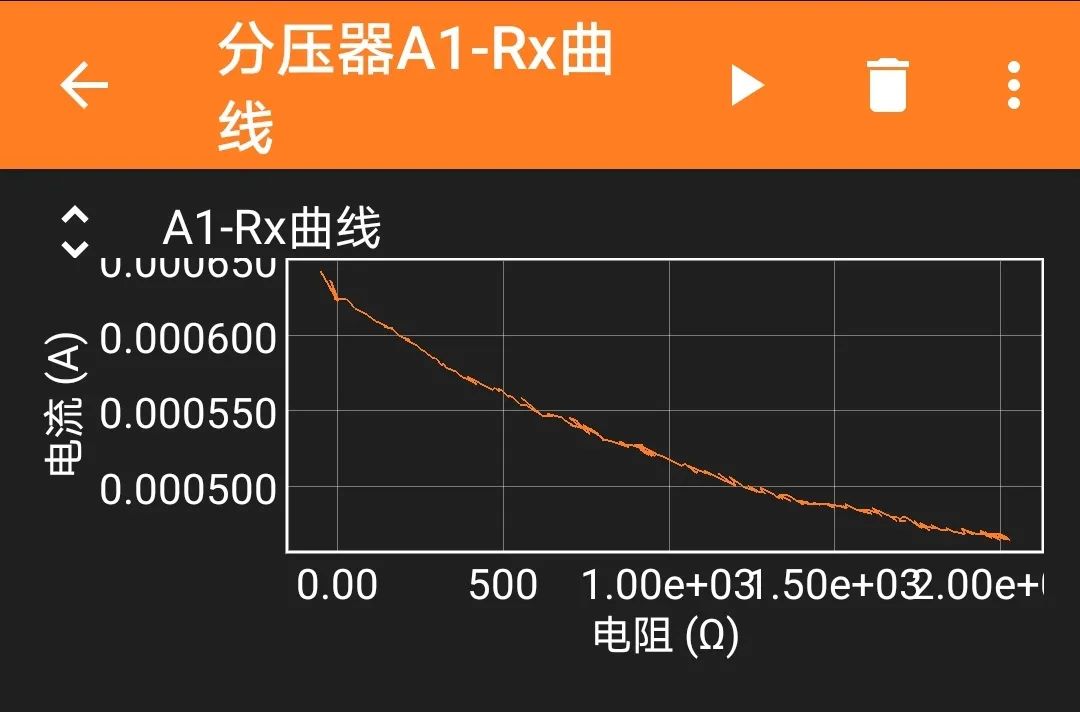
A1-Rx relationship graph
According to theoretical analysis, the resistance value corresponding to the lowest point of the curve is 3KΩ, with the lowest point exceeding the variable resistance of the rheostat. The current A1 monotonically decreases as Rx increases. The experiment is highly consistent with the theory.
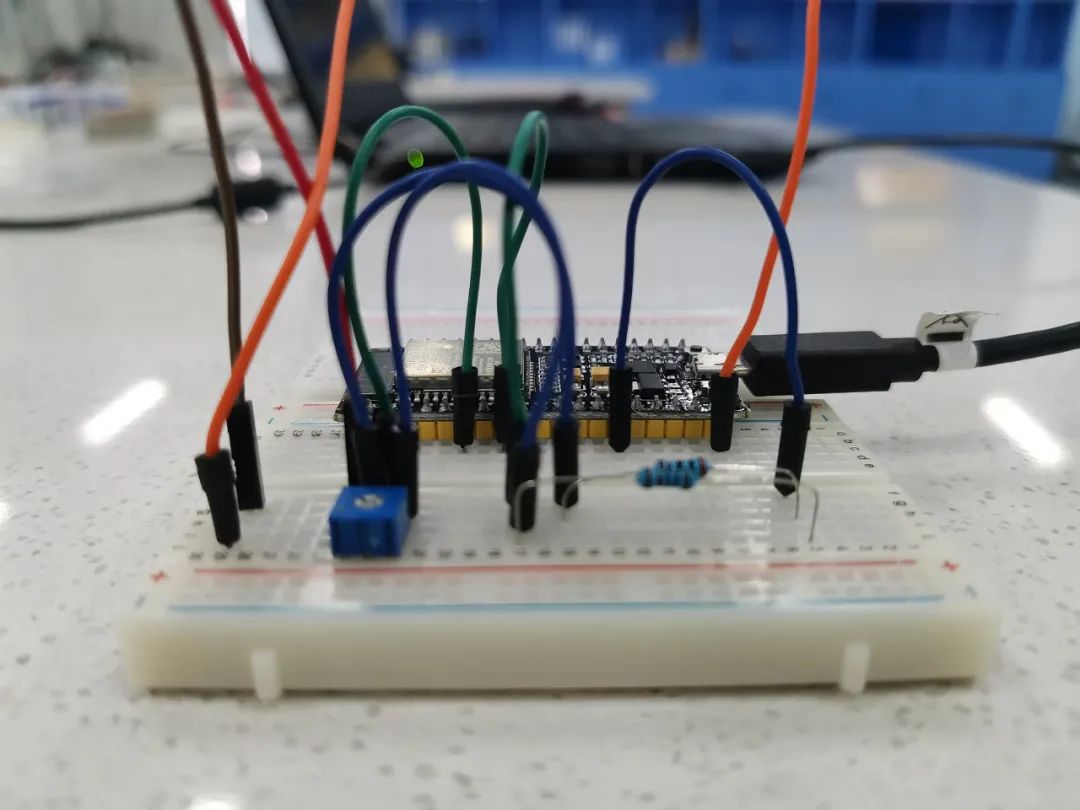
Acknowledgments
During the learning process of writing source code for the ESP32 development board and conducting Bluetooth experiments with Phyphox, Teacher Mei Xiaoxuan from Beijing He Ping Street No. 1 High School provided a lot of selfless technical guidance.
Special thanks.

| Maker Jiaozuo |
Henan Maker Jiaozuo is the WeChat public platform of the Maker Education Master Studio in Jiaozuo City, focusing on maker education research, sharing maker cases, explaining innovation methods, inspiring creative design, conducting scientific exploration, organizing social surveys, guiding thesis writing, participating in maker competitions and patent applications, discovering, cultivating, and achieving a group of students with innovative potential.
Henan Public number: chuangkejiaozuo
Henan Master blog: http://blog.sina.com.cn/updays

Long press to recognize, follow, share
– END –
